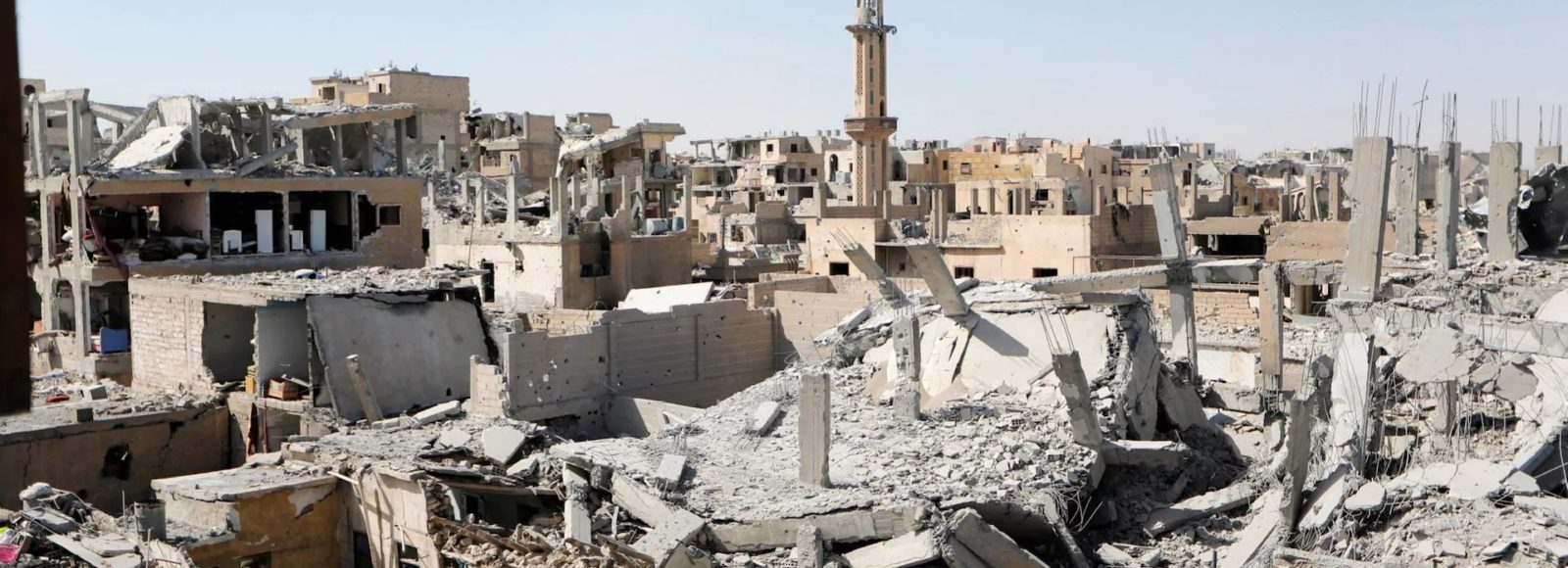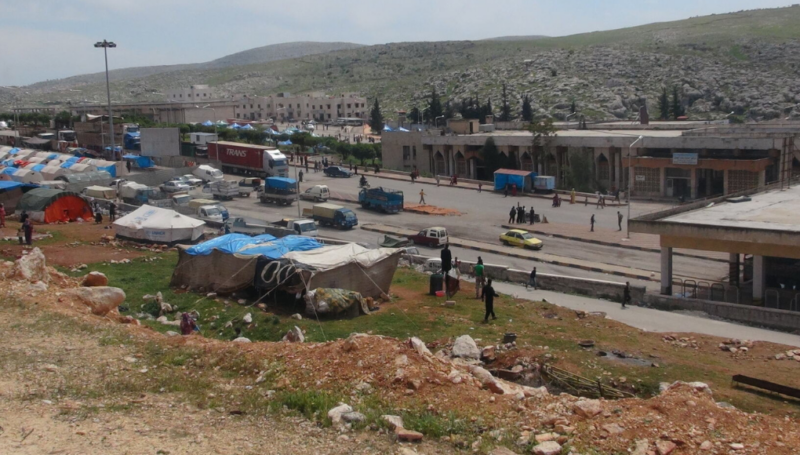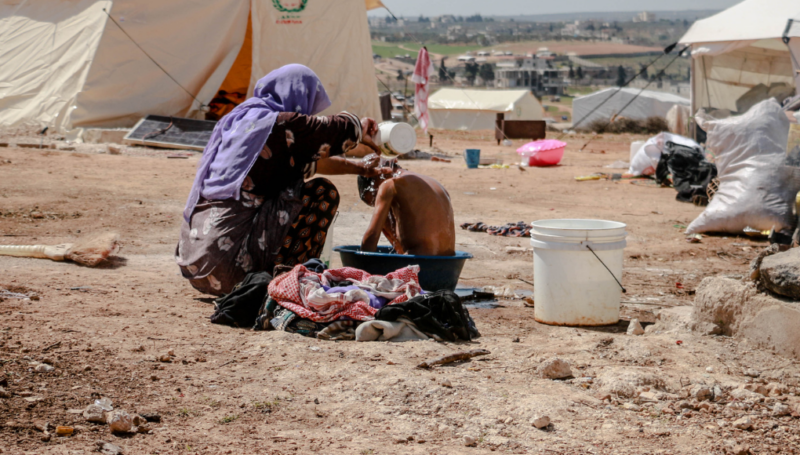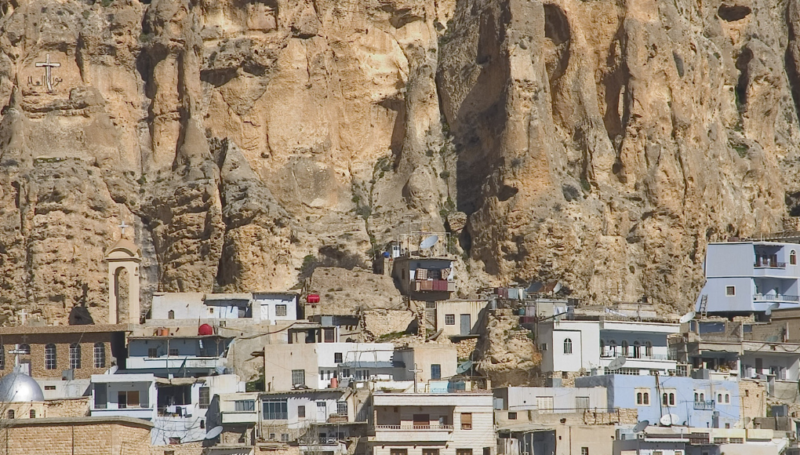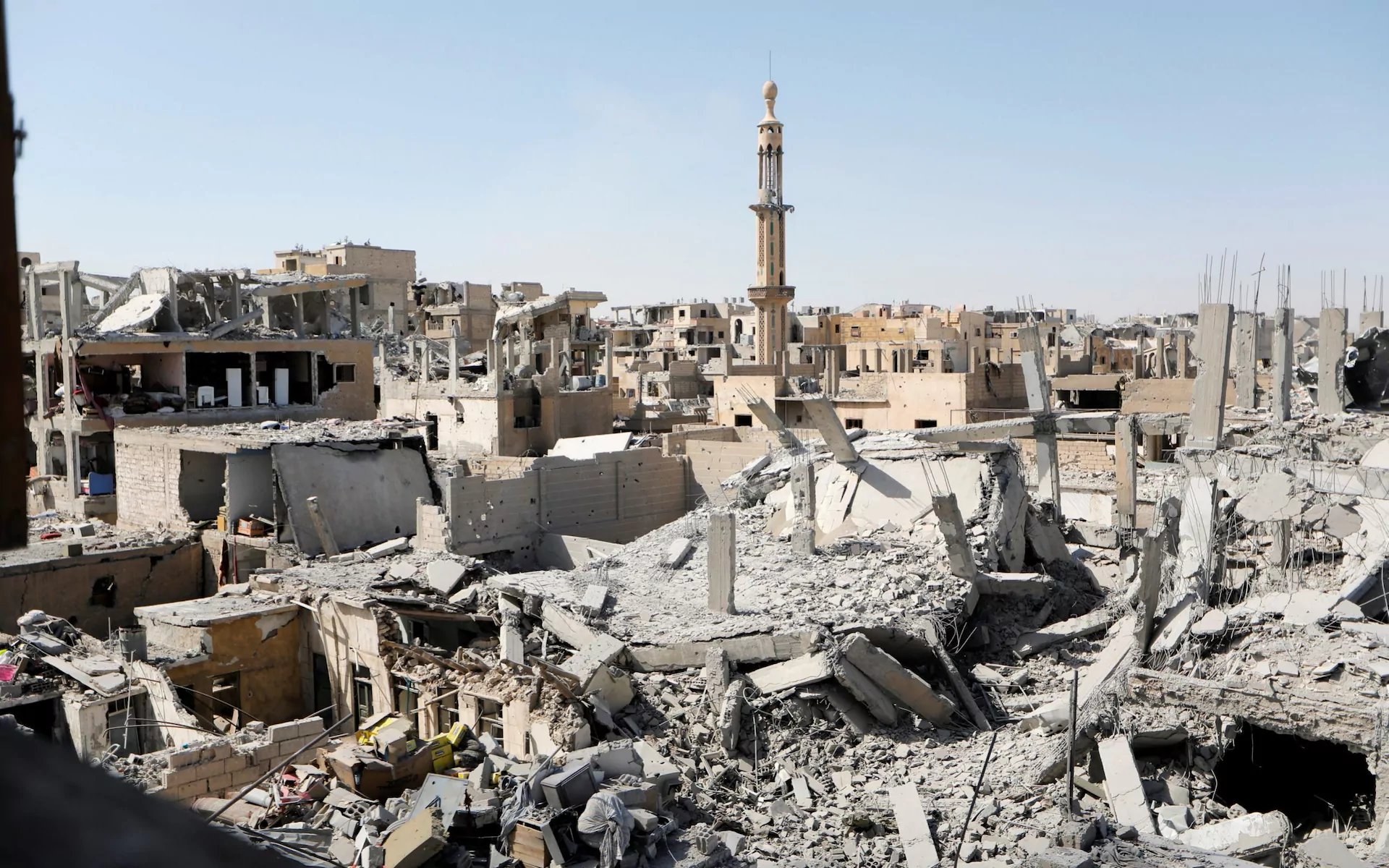
Following the sixth REACH assessment of needs in Ar-Raqqa city, media outlets reported the city was virtually completely empty of civilians. © The Telegraph 2017
After four months of ground fighting, the offensive that begun in June 2017 to expel the group known as the Islamic State of Iraq and the Levant (ISIL) from Ar-Raqqa city is coming to a close. Media reports indicate that the city is virtually empty after thousands of civilians were evacuated from the city within the last 48 hours and reportedly only a few hundred ISIL foreign fighters remain. Due to movement restrictions and limited information flows, humanitarian access and information on needs in Ar-Raqqa city have been extremely limited. To address this gap, REACH has regularly conducted rapid assessments of the humanitarian situation within the city, highlighting needs in terms of food, shelter, non-food items (NFI), WASH, health and protection.
Just prior to the announcement of the civilian evacuation, between 8 and 10 October 2017, REACH conducted a sixth rapid assessment in anticipation of decreased conflict and the onset of returns. Data was collected through qualitative interviews and participatory mapping exercises with Key Informants (KIs) who had left the city since 1 October.
The humanitarian situation faced by Ar-Raqqa remaining residents prior to evacuation was severe. Residents were not only directly at risk from the conflict, facing significant threats from airstrikes, sniper fire, shelling, mines and improvised explosives, they were also unable to meet their basic needs. According to reporting by KIs, the food situation had deteriorated to the point that residents were reportedly suffering from malnutrition, once the last functioning bakery in the city had been destroyed and remaining residents were relying entirely on food stored previously to survive. Only three boreholes were still providing water, in insufficient amounts, forcing remaining residents to reduce drinking water consumption and modify hygiene practices to cope with the shortages. Health services were not available in the city and there was no longer any electricity, as the supply of diesel had been exhausted and communal generators were no longer running.
Despite the impending cessation of conflict in Ar-Raqqa city, there had been no recorded permanent returns at the time of the assessment, though the Syrian Democratic Forces were facilitating daytime visits to neighbourhoods on the outskirts of the city to enable residents to check on property. Before displaced residents will be able to permanently return to their neighbourhoods, authorities reportedly intend to clear both rubble and unexploded ordnance and extensive repairs will be necessary to water and electricity networks and major public facilities such as National Hospital.
REACH intends to continue to monitor the situation in post-conflict Ar-Raqqa city and inform humanitarian actors on gaps and needs.
For a more detailed overview of the humanitarian situation in Ar-Raqqa City prior to the recent evacuation, access REACH VI Ar-Raqqa City Situation Overview at this link.





